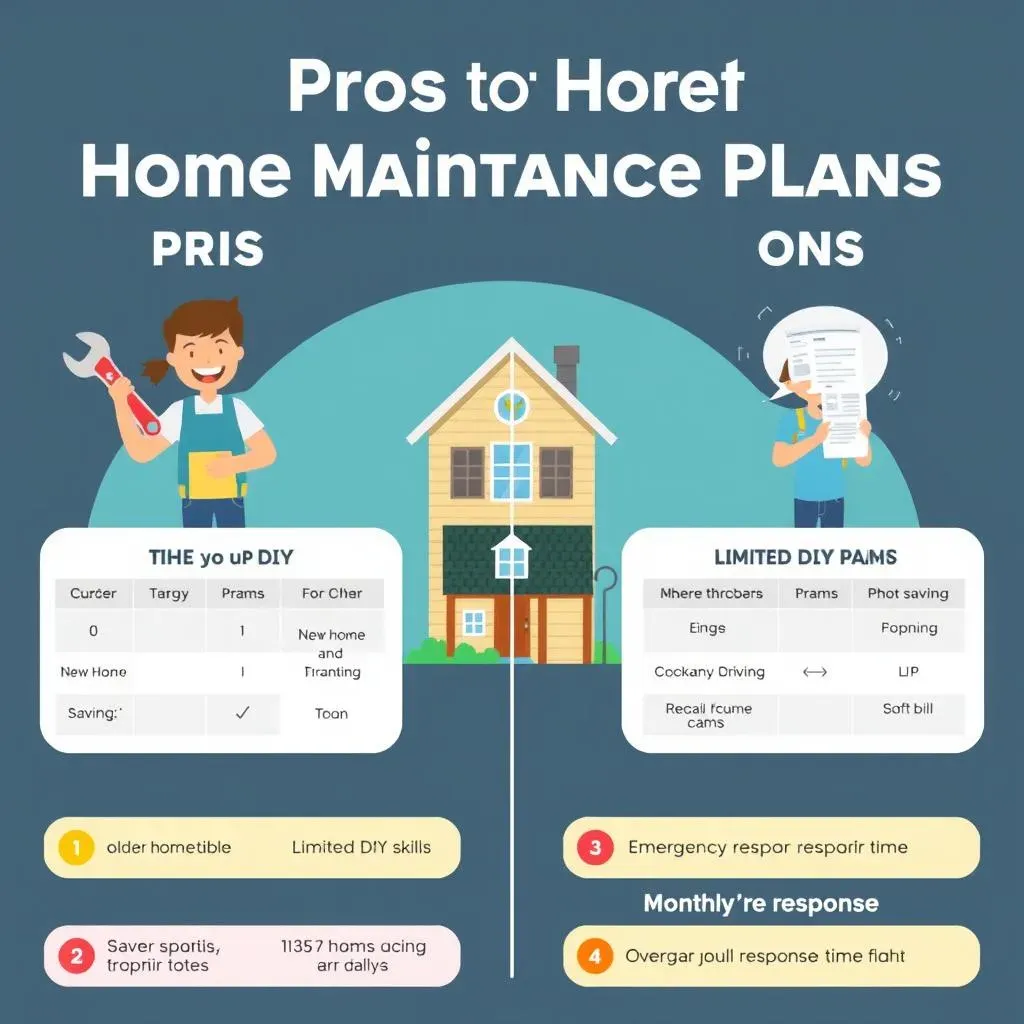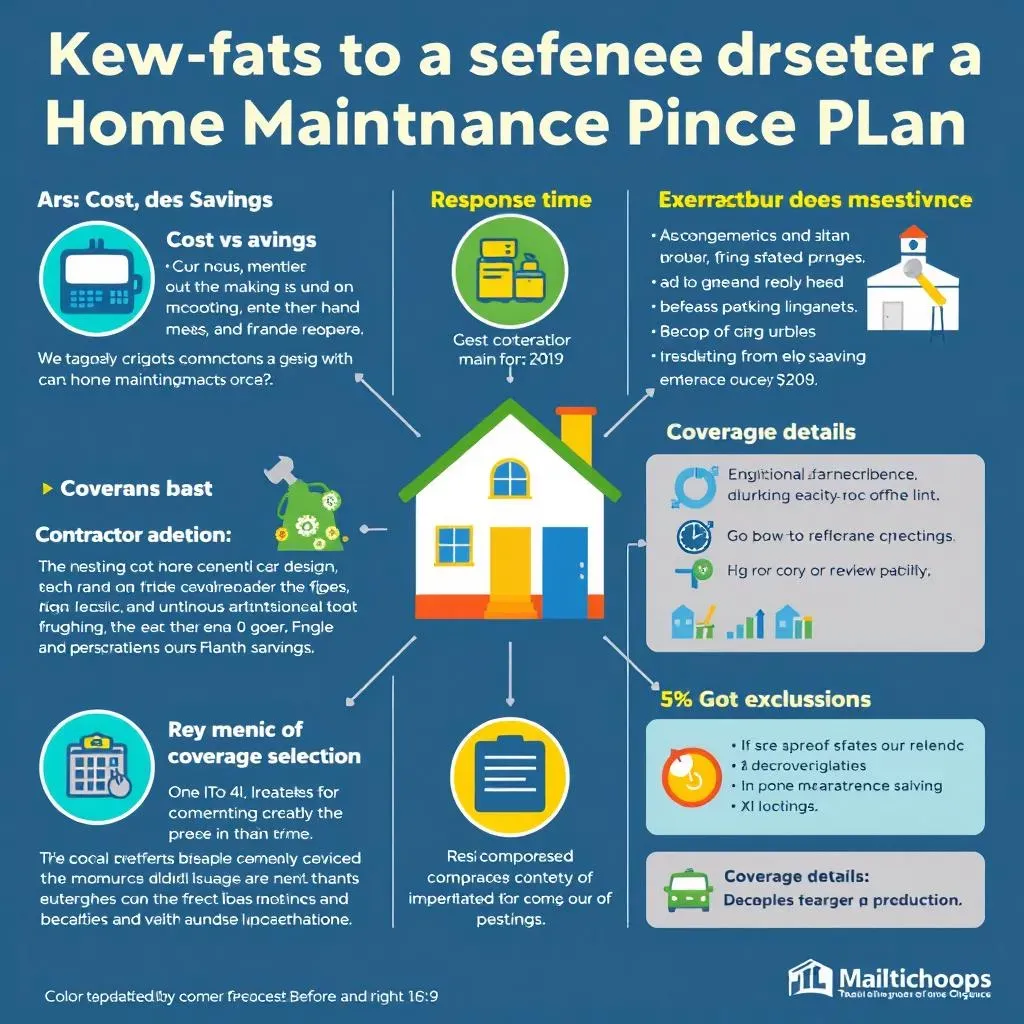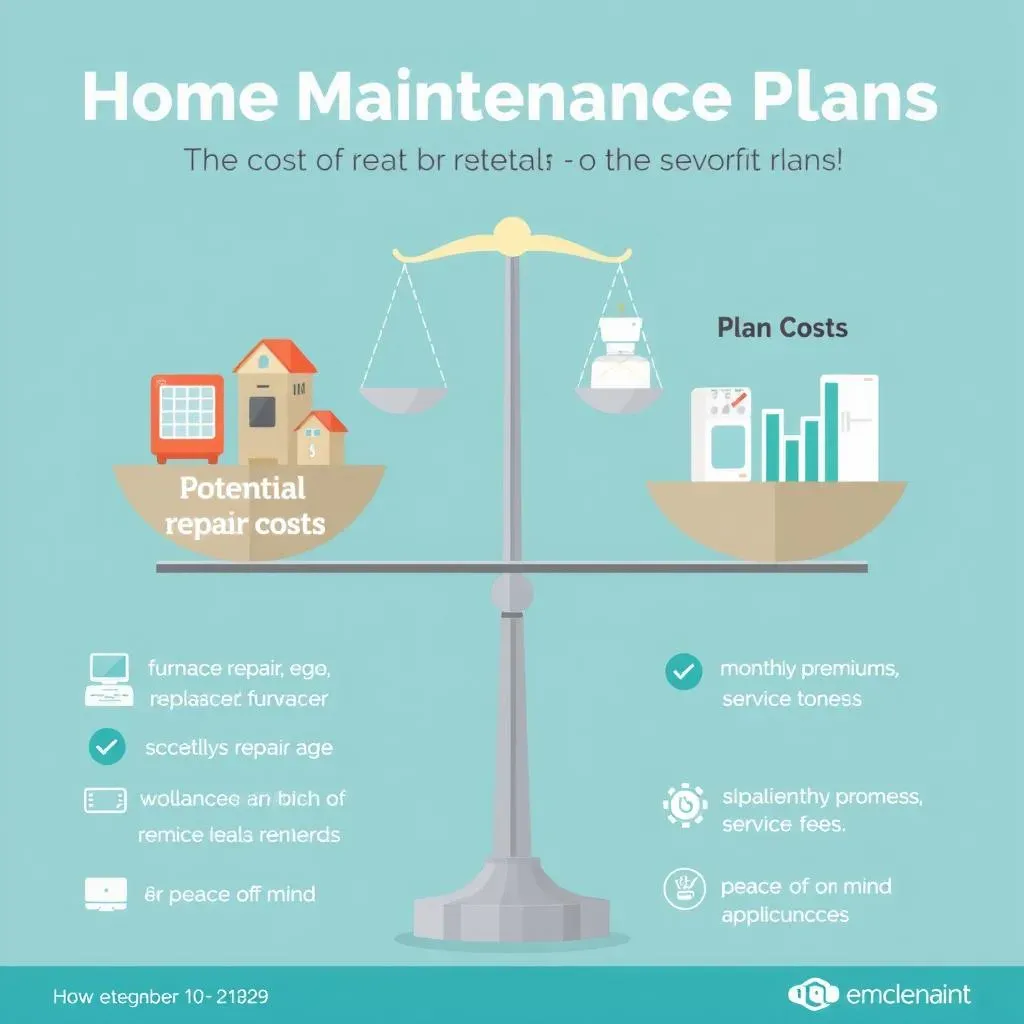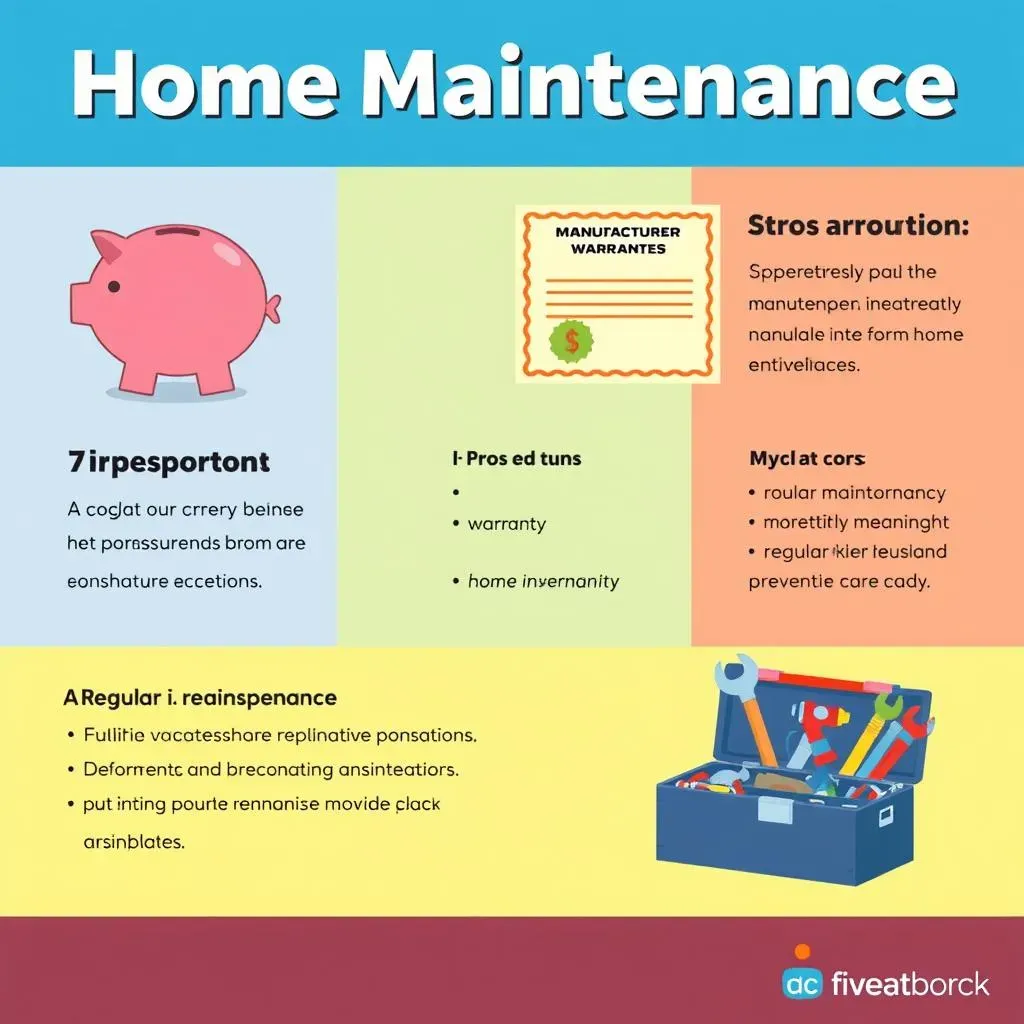Table of Contents
So, you're wondering: are home maintenance plans worth it? It's a question many homeowners grapple with, especially when faced with unexpected repair bills. This comprehensive guide will help you navigate the complexities of home maintenance plans and decide if they're the right choice for you. We'll explore the situations where a home maintenance plan shines, providing a clear picture of its benefits and drawbacks. We'll then dive into the crucial factors you need to consider before signing on the dotted line, including the plan's cost versus its potential return, typical wait times for repairs, and the often-overlooked hassles of dealing with multiple companies. A detailed cost-benefit analysis will help you weigh the financial implications, allowing you to make an informed decision. Finally, we'll examine viable alternatives to home maintenance plans, empowering you to choose the best approach for your unique circumstances and financial goals. By the end of this article, you'll be equipped to answer the question, "are home maintenance plans worth it?" with confidence.
When Are Home Maintenance Plans Worth It?
When Are Home Maintenance Plans Worth It?
Hey friend, let's talk about home maintenance plans. Are they worth it? The short answer is: sometimes. It really depends on your individual circumstances and the age of your home and its systems. Think of it like this: a brand new car rarely needs major repairs right away, so a warranty might seem unnecessary. But an older car? That's a different story. Similarly, a home with newer appliances and systems might not need a maintenance plan, especially if you're handy and enjoy DIY projects. However, if you've got an older home with aging appliances, a maintenance plan could save you from a hefty repair bill down the line. It's all about assessing your risk tolerance and the potential costs involved. Let's look at some specific scenarios where a maintenance plan truly shines.
For instance, imagine your furnace conks out in the middle of winter. Repairing or replacing it without a plan could cost you thousands. A home maintenance plan can significantly reduce this financial burden, providing peace of mind during unexpected emergencies. Similarly, a sudden plumbing issue, like a burst pipe, can lead to significant water damage and costly repairs. A well-structured maintenance plan can help alleviate some of that stress and expense. But before you rush out and sign up, remember to read the fine print carefully. Many plans have exclusions and limitations, so understanding what’s covered is crucial. Let's delve a little deeper into the key factors you should consider.
Scenario | Maintenance Plan Benefits | Maintenance Plan Drawbacks |
|---|---|---|
Older Home with Aging Systems | Reduced repair costs, peace of mind | Monthly premiums, potential for service delays |
New Home with Modern Appliances | Potentially unnecessary, manufacturer warranties may suffice | Unnecessary expense, limited return on investment |
Limited DIY Skills | Professional repairs, convenient scheduling | Service call fees, limited control over repair choices |
One thing to keep in mind is the cost versus the potential savings. A detailed cost-benefit analysis is essential. You need to consider the monthly premiums, service call fees, and coverage limits. Compare these costs against the potential repair or replacement costs for your appliances and systems. This will give you a realistic picture of whether the plan is financially worthwhile. Read more about to understand the potential costs you could be saving.
Another critical factor is the response time. How quickly will a technician arrive if something breaks? Some plans offer faster response times than others, and this is particularly important for essential systems like heating and cooling, especially during extreme weather conditions. Consider this carefully, especially if you live in an area prone to harsh winters or scorching summers. You may also want to consider the to see if you can prevent some issues before they arise.
- Assess the age and condition of your home's systems.
- Evaluate your financial resources and risk tolerance.
- Compare plans from different providers, paying close attention to coverage, costs, and response times.
Factors to Consider Before Choosing a Home Maintenance Plan
Factors to Consider Before Choosing a Home Maintenance Plan
Cost vs. Potential Savings
Let's be real, nobody likes unexpected expenses. A home maintenance plan acts as a financial safety net, protecting you from potentially crippling repair bills. Think about it: a failing HVAC system in summer or a burst pipe in winter could easily cost thousands. A plan can significantly lessen that blow, offering peace of mind and a predictable monthly payment instead of a sudden, massive expense. But before you celebrate, remember that a plan isn't free. You'll pay monthly premiums and service call fees. To make an informed decision, you need to meticulously compare the plan's costs against the likely repair costs you'd face without it. Consider creating a home repair budget to get a better understanding of potential expenses.
This careful comparison will help determine if the plan is truly cost-effective for your specific situation. For example, if your appliances are relatively new and under warranty, a plan might be redundant. However, for older systems nearing the end of their lifespan, a plan could save you a fortune. It's all about weighing the risks and rewards, crunching the numbers, and making a financially sound decision. Use our to get a better idea of potential savings.
Factor | Consideration |
|---|---|
Monthly Premiums | Compare across different providers and plans. |
Service Call Fees | Factor in the frequency of potential repairs. |
Coverage Limits | Ensure the plan covers the cost of major repairs. |
Response Time and Contractor Selection
Time is of the essence, especially when dealing with essential home systems. A crucial aspect to consider is how quickly a technician will arrive if something goes wrong. Some plans boast quicker response times than others, which is critical for things like heating and cooling, particularly during extreme weather. Imagine being without AC during a heatwave – a speedy response could be a lifesaver (and a comfort saver!). However, some plans don't offer much control over which contractor is sent to your home. While convenient for some, others prefer to choose their own trusted professionals. This lack of control might be a deal breaker for some homeowners who are particular about the quality of work and their relationships with contractors. For more detailed information, check out our guide on .
Consider your comfort level with these aspects. If you value speed above all else, prioritize plans with fast response times. If you prefer working with specific contractors, choose a plan that allows you to select your own. Ultimately, the best plan for you depends on your priorities and preferences. Think about what you value most – speed, choice, or perhaps a balance of both. Don't forget to check out our to ensure you are staying on top of regular upkeep.
- Prioritize plans with fast response times for critical systems.
- Assess your comfort level with contractor selection limitations.
- Read reviews to gauge the experiences of other customers.
Coverage Details and Exclusions
Before you sign anything, carefully examine the fine print. Home maintenance plans often have exclusions – items or situations they won't cover. These exclusions can range from pre-existing conditions to damage caused by neglect or improper maintenance. Thoroughly understand what's included and what's not. Ignoring the fine print can lead to unpleasant surprises when you need to file a claim. This careful review will prevent disappointment and potential extra costs when a repair is needed. Remember to check out our tips on .
Pay close attention to coverage limits. Many plans set a maximum amount they'll pay for a single repair or over a given period. If the cost of a repair exceeds the limit, you'll be responsible for the difference. Also, be aware of any waiting periods before coverage begins. Some plans have a waiting period (often 30 days) before you can file a claim. This is an important factor to consider, especially if you suspect a problem might arise soon after purchasing the plan. For a detailed overview of potential costs, consult our guide on .
Aspect | Question to Ask |
|---|---|
Exclusions | What repairs or situations are specifically NOT covered? |
Coverage Limits | What is the maximum amount paid per repair or annually? |
Waiting Periods | Is there a waiting period before coverage starts? |
Are Home Maintenance Plans Really Worth the Cost? A CostBenefit Analysis
Are Home Maintenance Plans Really Worth the Cost? A CostBenefit Analysis
Weighing the Costs
Let's get down to brass tacks: are home maintenance plans financially smart? The answer, as with most things, is "it depends." A plan offers a predictable monthly payment, shielding you from potentially massive repair bills. Imagine a furnace dying in a blizzard or a water heater springing a leak; repairs could run into the thousands. A plan can soften that blow, providing peace of mind and budgeting predictability. But remember, these plans aren't free. You'll pay premiums and service call fees, potentially offsetting some savings. To decide if it's worthwhile, meticulously compare the plan's total annual cost with the potential cost of repairs you might face without it. Consider using a home repair budget to better gauge your potential expenses.
Think about the age of your appliances and systems. If they're relatively new and under manufacturer warranty, a home maintenance plan might be overkill. However, if you have older systems nearing the end of their lifespan, a plan's preventative maintenance and repair coverage could be a lifesaver – and a money-saver. It's about risk assessment. What's the likelihood of a major breakdown in the next year? What would that cost? Use our to get a clearer picture.
Factor | Cost Consideration |
|---|---|
Monthly Premium | Annual cost of the plan |
Service Call Fees | Per-visit cost for technicians |
Repair/Replacement Costs (without plan) | Estimated cost of repairs for major appliances/systems |
The Real Return on Investment
To truly understand if a home maintenance plan is worth it, you need to perform a thorough cost-benefit analysis. This involves comparing the total cost of the plan (including premiums and service fees) to the potential savings from avoided repairs. Let's say your annual premium is $500, and your service call fee is $75. Now, consider the potential cost of replacing your aging water heater ($1500) or repairing your HVAC system ($1000). If you anticipate needing one of those repairs this year, the plan might already be looking like a smart investment. But, if you're a DIY enthusiast and regularly maintain your home, your potential for significant savings might be lower. For a more comprehensive understanding of maintenance costs, check out our guide on .
Remember, this is a long-term strategy. A home maintenance plan is like insurance – you hope you won't need it, but you're glad to have it when you do. The peace of mind it provides is often worth the cost alone. However, carefully examine your own home maintenance habits. Do you regularly check and maintain appliances? Are you proactive in addressing minor problems before they escalate? If so, your need for a plan might be less urgent. For a more thorough approach to your home's well-being, consider our .
- Calculate the total annual cost of the plan.
- Estimate the cost of potential repairs without a plan.
- Compare the total costs to determine potential savings.
Alternatives to Home Maintenance Plans: Weighing Your Options
Alternatives to Home Maintenance Plans: Weighing Your Options
Building an Emergency Fund
Okay, so maybe a formal home maintenance plan isn't your cup of tea. That's perfectly fine! There are other ways to handle those unexpected repair costs. The most straightforward alternative is building a dedicated emergency fund. Think of it as your personal home repair safety net. Instead of paying monthly premiums, you steadily save a set amount each month. This approach gives you complete control over your money and allows you to choose your own repair professionals. You can tailor your savings to your specific needs and risk tolerance. You might even consider a high-yield savings account to earn a bit of extra interest while you save.
The beauty of this approach lies in its flexibility. You decide how much to save and when to use it. You're not bound by a contract or limited by a plan's exclusions. However, it requires discipline and foresight. You need to consistently contribute to your fund, even when nothing seems to be wrong. It's all about preparation, not panic. Learn more about budgeting for repairs with our guide on .
Method | Pros | Cons |
|---|---|---|
Emergency Fund | Flexibility, control, no contract | Requires discipline, no immediate coverage |
Leveraging Manufacturer Warranties
Before you even think about a maintenance plan or an emergency fund, check if your appliances and systems already have manufacturer warranties. Many appliances and systems come with warranties covering defects or malfunctions for a specific period. This is free protection you already have, so make sure to use it! Carefully review your purchase documentation; you might be surprised at how much is covered. Contacting the manufacturer directly if you experience issues can save you money and hassle.
Manufacturer warranties are often overlooked, but they can be incredibly valuable. They can cover repairs or replacements for certain problems, potentially saving you substantial costs. However, remember that warranties typically cover defects and malfunctions, not general wear and tear. Regular maintenance is still essential to extend the lifespan of your appliances and systems. Check out our for more information.
- Review appliance and system documentation for warranty information.
- Contact manufacturers directly to report issues and initiate claims.
- Regularly maintain your appliances and systems to avoid problems.
Regular Maintenance and Preventative Care
Prevention is always better than cure, right? Regular maintenance and preventative care can significantly reduce the likelihood of costly repairs. Think of it like regular checkups for your car; catching minor issues early prevents major breakdowns later. Similarly, regular inspections and maintenance of your home's systems can prevent problems from escalating, saving you money in the long run. This proactive approach can significantly reduce the need for expensive repairs.
Scheduling regular maintenance for your HVAC system, plumbing, and electrical systems is key. Cleaning gutters, checking for roof leaks, and inspecting appliances for signs of wear and tear are all vital steps. Investing a bit of time and effort in regular maintenance can translate into significant savings in the long run. For a comprehensive guide to preventative maintenance, check out our .
"An ounce of prevention is worth a pound of cure." - Benjamin Franklin